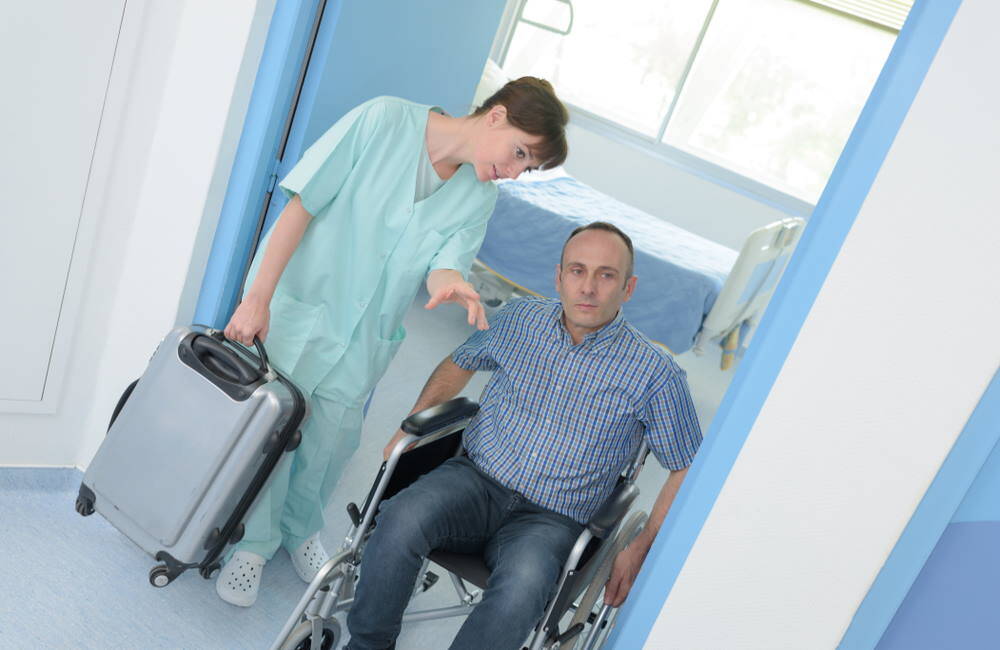A healthcare situation that requires a trip to the hospital can be an anxiety-inducing, stressful time for families. It’s only natural that everyone focuses on the medical treatment and doesn’t give much thought to hospital discharge planning.
But how people plan for what happens when they leave the hospital after discharge plays an important role in their health going forward. Over the years, experts have learned that better hospital discharge planning leads to better health outcomes.
Everyone plays a role in hospital discharge planning. This includes patients, family, caregivers and healthcare providers. The following looks at some of the key points when you leave the hospital after discharge. All are important factors to consider for hospital discharge planning.
What Happens When You Get Discharged From a Hospital?
Only a doctor can authorize a patient to get released from the hospital. In most hospitals, a hospital worker meets with patients and family to deliver discharge instructions. This could be a social worker, nurse, case manager or other healthcare professional. They will go over information they need to make the transition home. They show patients paperwork that lists all the procedures and treatments received. Patients need to verify the accuracy of the information, because it’s what they base a hospital bill on.
What Is Hospital Discharge Planning?
Hospital discharge planning involves a process for making a plan in advance on all the issues involved in transitioning from the hospital to home. For the hospital, discharge involves a team approach. That should also be the case with patients.
Hospital discharge planning typically breaks down into the following three major areas.
Asking Questions
When meeting with the hospital discharge planner, it’s important to have questions ready. Some of the typical questions patients need answered include:
- What’s my medical condition status?
- When do I need to see the doctor again?
- What are the details on the medication I am taking once I get home?
- How do I operate any equipment I need (wheelchairs, walkers, etc.)?
- How active can I be after discharge, or how long should I wait to be active after discharge?
Transportation Home
Patients either transition to their home or to another care facility. In either case, safe transportation is needed. Some prefer turning to professional non-emergency medical transport such as Flying Angels to handle these trips. They provide experienced nurses to travel with patients and ensure they receive quality medical care as they transition out of the hospital.
How Do You Book Medical Travel?
Help at Home
Another key issue for patients is planning for care once they get back home. Some of the common needs include cleaning the house, cooking, shopping, laundry, personal care if needed (such as help with bathing and dressing), emotional care and healthcare (such as managing medications). Hospital representatives should have information about government-funded services and non-profit organizations that can help with such services. Family and friends can also help track down different services.
If a patient thinks they will need to hire services, don’t wait until the last minute and make a hasty decision. Prices and level of service vary greatly in this area. It’s important to take some time and look around for the best choice to fit your circumstances. Planning on these key issues can give patients a level of comfort they need as they prepare to transition back home. Patients do well to take the initiative and plan ahead. That ensures they make a safe and healthy transition when they leave the hospital after discharge.
